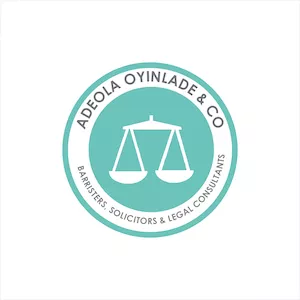- within Strategy topic(s)
- with readers working within the Accounting & Consultancy and Law Firm industries
- within Strategy topic(s)
- within Strategy, Employment and HR and Insurance topic(s)
- with readers working within the Law Firm industries
Introduction
Repatriation is the process of returning people, money, or heritage items to their home country or culture. In the financial sector, repatriation refers to the conversion or exchange of foreign currency into one's native currency. Repatriation occurs when a taxpaying entity returns money generated abroad to its home nation.
This can apply to a firm that earns money through a foreign subsidiary or an individual who has investments, earned income, or money gained while traveling overseas. Foreign investors in Nigeria need guarantee that their funds can be easily repatriated at any time. This article offers assistance for foreign investors seeking to repatriate funds in Nigeria.
Legal Framework Governing Repatriation of Funds in Nigeria
- Foreign Exchange (Monitoring and Miscellaneous Provisions) Act: This act regulates foreign exchange transactions in Nigeria and outlines the procedures for repatriating funds. It ensures that foreign investors can freely transfer their capital and profits, provided they comply with the established guidelines.
- Nigerian Investment Promotion Commission (NIPC) Act: The NIPC Act promotes and protects foreign investments in Nigeria. It guarantees the right of foreign investors to repatriate their capital and profits, enhancing investor confidence.
- Central Bank of Nigeria (CBN) Regulations: The CBN oversees the foreign exchange market and regulates the repatriation process. It has established guidelines that banks must follow when processing requests for capital outflows, ensuring compliance with monetary policies and foreign exchange controls.
Procedures for Repatriation of Funds from Nigeria by Foreign Investors
Foreign investors looking to repatriate capital and profits from Nigeria must adhere to specific procedures governed by Nigerian law.
Here is a detailed overview of the process:
- Obtain a Certificate of Capital Importation (CCI)
The CCI is a document issued by an authorized dealer (usually a Nigerian commercial bank) on behalf of the Central Bank of Nigeria. It serves as proof that foreign capital has been brought into Nigeria for investment purposes.
Requirements for Obtaining a CCI
- Capital Inflow: The capital must be imported into Nigeria in the form of cash, debt, equity, or goods. This includes cash investments, loans, purchase of equipment or raw materials.
- Authorised Dealer: The CCI must be obtained from an authorized dealer, which is a commercial bank operating in Nigeria. The bank is required to issue the CCI within 24 hours of the capital inflow.
- Documentation: The following documents are required to obtain a CCI:
- Application Letter: A formal request for the issuance of the CCI.
- Board Resolution: A resolution from the investor's board authorising the investment.
- Certificate of Incorporation: Proof of the investor's registration in Nigeria.
- Evidence of Capital Importation: This could be a telegraphic transfer receipt, bank statements, or other proof of the capital being brought into Nigeria.
- Filing with the CBN: The authorised dealer must file returns with the Central Bank of Nigeria within 48 hours of issuing the CCI.
- Electronic Certificates of Capital Importation (e-CCI): The CBN has introduced e-CCIs to streamline the process of capital importation and repatriation. These electronic certificates are managed through an online platform, reducing the risk of loss or misplacement of documents.
Once the CCI is obtained, the investor can proceed with the repatriation of funds. The process includes:
- Tax Compliance: Ensure all applicable taxes (e.g., withholding tax on dividends) are paid. A tax clearance certificate may be required for the repatriation of profits.
- Request for Repatriation: Investors must submit a request to the authorised dealer for the transfer of funds, accompanied by the CCI and any other required documentation.
- Currency Conversion: The repatriation can be done in any convertible currency, as long as the investment was documented under a CCI.
The following can be repatriated without hindrance:
- Dividends, Rent, Royalties, Profits (net of taxes) attributable to the investment. Dividend payments are subject to withholding tax at 10% as final tax (7.5% for qualifying recipients in a treaty country).
- Payment of interest and capital on foreign loans. A tax clearance certificate is required to remit dividend and interest out of the country.
- The remittance of proceeds (net of taxes) and other obligations in the event of a sale or liquidation of the enterprise or any interest attributable to the investment.
There is currently no limit on profits that can be distributed as dividends, as long as they come from profits rather than capital and there are no reasonable grounds to believe that the company is or will be insolvent after the payment.
- Use of Technology Transfer Agreements (TTA)
Foreign investors can also repatriate funds through TTAs, which involve the transfer of technology, trademarks, or technical expertise to a Nigerian company. To repatriate funds from Nigeria through a Technology Transfer Agreement, foreign investors must follow specific requirements and provide necessary documents to the National Office for Technology Acquisition and Promotion (NOTAP).
Here are the steps:
The TTA must be registered with the National Office for Technology Acquisition and Promotion (NOTAP)
Requirements for Registering a TTA with NOTAP
- The purpose of the TTA must be for the use of trademarks, patented inventions, supply of technical expertise, basic/detailed engineering, machinery and plant, operating staff or managerial assistance, and training of personnel.
- The TTA should include provisions that give the Nigerian recipient explicit rights to use and exploit the technology, including the duration.
- Capacity building must be included, with details of Nigerians understudying the experts.
- The TTA should make provision for deduction of appropriate local taxes.
- Research carried out should be incorporated in the agreement.
- The scope of services and the services to be rendered by the transferor should be clearly stated.
- The TTA should state the methods for the domestication of technology, local raw material development, and skills acquisition.
Required Documents for Registering a TTA
- Completed Application Form, NOTAP Questionnaire, and TAA Pre-Qualification Form
- Draft Copy of the Technology Transfer Agreement to be Registered
- Company's Memorandum and Article of Association
- Certificate of Incorporation
- Annual Report
- Tax Clearance Certificate and Tax Identification Number (TIN)
- Engineering Drawings, Feasibility Study, Report where applicable
- Approval/Licenses Obtained from Appropriate Authorities and Bodies
- Transferor/Licensor Profile
Once the TTA is registered with NOTAP and all applicable taxes are paid, the foreign investor can repatriate funds through the authorised dealer that issued the Certificate of Capital Importation (CCI) for the investment. The CCI serves as proof of the capital inflow and enables unrestricted repatriation of profits and capital.
Conclusion:
The repatriation of funds and capital in Nigeria is facilitated through a structured process that includes obtaining a CCI, ensuring tax compliance, and possibly utilising technology transfer agreements. The legal framework, including the Foreign Exchange (Monitoring and Miscellaneous Provisions) Act and the NIPC Act, supports these processes, providing foreign investors with the assurance that they can freely transfer their investments and profits out of Nigeria.
The content of this article is intended to provide a general guide to the subject matter. Specialist advice should be sought about your specific circumstances.


